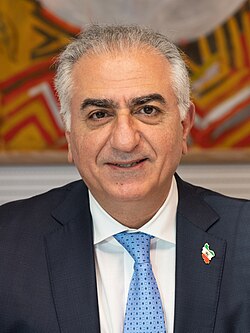Reza Pahlavi: A Voice for Democratic Change in Iran

Introduction
Reza Pahlavi, the son of the last Shah of Iran, has been a prominent figure in the discourse surrounding Iran’s future. His advocacy for democracy and human rights has put him at the forefront of movements calling for reform and change in Iran, especially against the backdrop of ongoing protests and civil unrest in the country. Understanding Pahlavi’s role and his vision is essential for those following Iran’s political landscape.
Background
Born on October 31, 1960, in Tehran, Reza Pahlavi fled Iran with his family during the 1979 Islamic Revolution which led to the downfall of his father, Mohammad Reza Shah Pahlavi. Since then, he has lived in the United States, where he has maintained a strong connection with Iranian expatriates. As a political activist, he has aimed to unite Iranian citizens to demand an end to the current theocratic regime and set the foundation for a democratic state.
Recent Developments
In 2023, widespread protests erupted in Iran, fueled by grievances against the government and its oppressive policies. Demonstrators have chanted slogans calling for freedom and the end of the Islamic Republic. In this turbulent context, Pahlavi’s platform has become increasingly influential. He has advocated for a secular government that respects human rights and promotes citizenship rights for all Iranian citizens, regardless of ethnicity or religion.
Pahlavi has also engaged with various global leaders, attempting to garner support for a democratic movement in Iran. His efforts include calls for international communities to impose sanctions on officials who violate human rights. Additionally, he has emphasized the importance of a peaceful transition to democracy and has specifically condemned violence as a method of achieving political change.
Pahlavi’s Vision for Iran
Reza Pahlavi’s vision encompasses extensive reforms aimed at establishing a parliamentary democracy in Iran. He envisions a nation where citizens have the freedom to express their opinions, choose their government, and live without fear of persecution. His proposals have resonated with many Iranians who are eager for an alternative to the current regime.
Conclusion
The significance of Reza Pahlavi’s role in contemporary Iranian politics cannot be understated. As the country grapples with internal dissent and calls for reform, his advocacy for democracy may serve as a unifying force among the Iranian populace. While the path to change remains uncertain and complex, Pahlavi embodies a compelling vision for a future Iran that prioritizes human rights, democracy, and peace. The international community’s response to his appeals and the Iranian people’s reactions will be crucial indicators of Iran’s political trajectory in the years to come.









